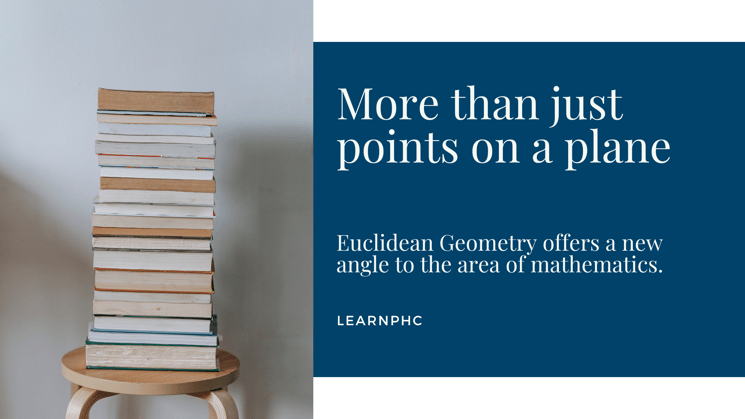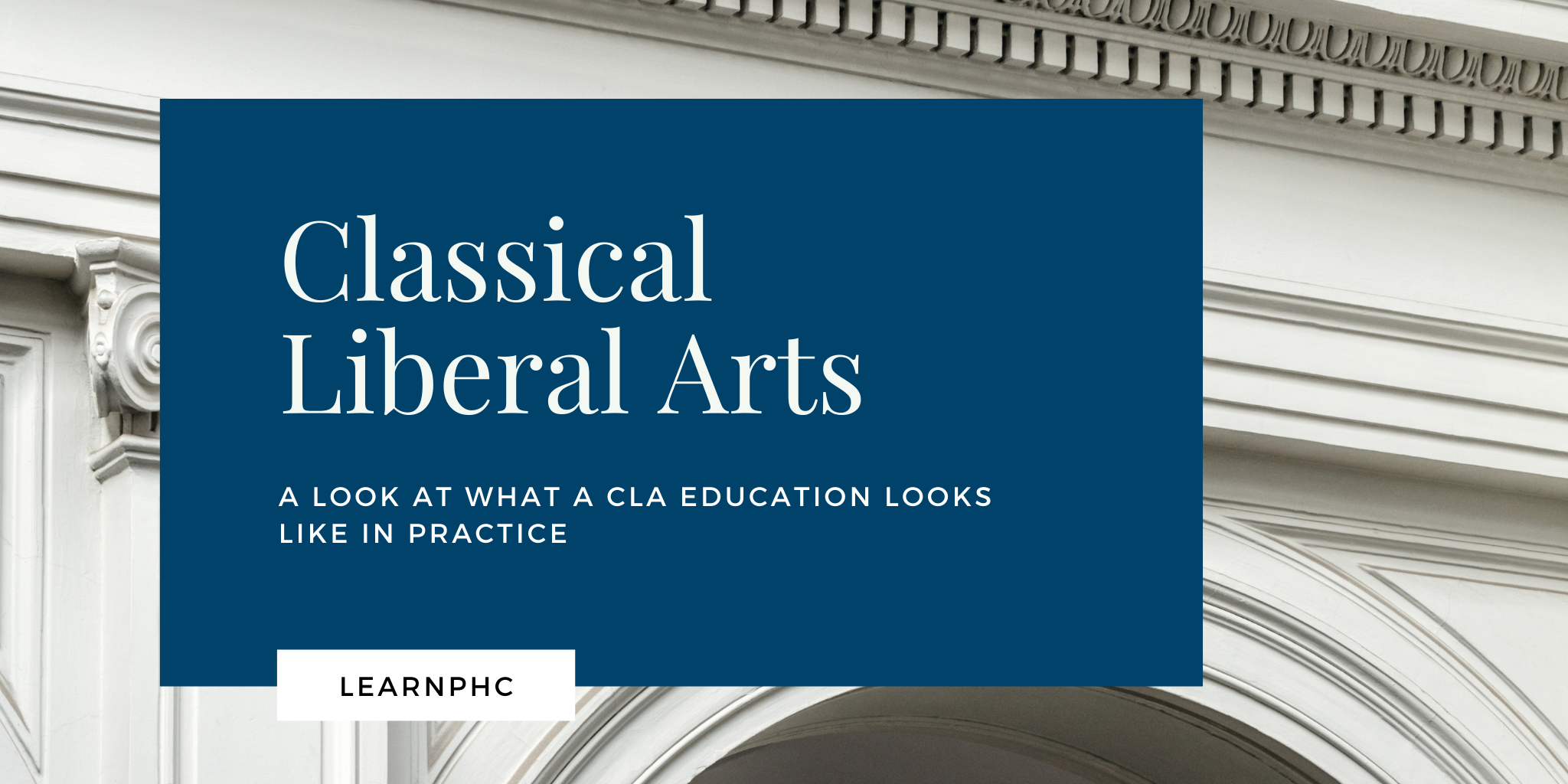
Every student at Patrick Henry College must complete the core curriculum, regardless of their major. Alongside history, literature, and philosophy classes, every student takes Euclidean Geometry. While most students are familiar with geometry, Euclidean Geometry presents a different side of mathematics—one which sheds light on the connection between God and mathematics.
Historically, the classical liberal arts education consisted of the trivium (grammar, logic, and rhetoric) and the quadrivium (geometry, astronomy, and arithmetic). As a form of geometry, Euclid’s Elements fit perfectly into PHC’s philosophy of education.
Dr. Marissa Walraven, Assistant Professor of Chemistry, teaches Euclidean Geometry every semester. “As a course at PHC,” Walraven explained, “Euclidean Geometry is a rich exploration of mathematics grounded in the specifics of the Elements [of Euclid].” The subject deals with shapes and measurements, starting with a particular set of axioms, or logical starting points.
As a whole subject, mathematics is “the premier tool of describing the world,” but many do not consider the implications of how we view the world, said Walraven.
Throughout the semester, students discover the myriad of ways mathematics intertwines with concepts of truth and how such truths relate to a Christian worldview. Along with practical mathematical and visual skills, Euclidean Geometry offers new ways to view philosophical points in math through a biblical lens.
Walraven explained that she desires to teach Euclidean Geometry in a way which demonstrates its interconnectedness with the other subjects in PHC’s core curriculum. One of the ways she does this is by helping her students view mathematics through a biblical lens. “What characteristics does math share with God?” Walraven asked.
Math is generally focused on what is true and what is false, which means it even reaches into the realm of truth. In her class, Walraven walks students through the historic developments in mathematics “which shook people’s view of truth.” However, Walraven said, such development need not affect our view of truth, because, as Christians, our truth is based heavily on revelation from God instead of solely on empirical evidence. Of course, there are empirical facts, because two plus two will always equal four, but moving beyond the bare facts requires delving into the revelational and philosophical realm. Just as in other subjects, the bare facts are not all we should seek. “We need wisdom, not just knowledge and understanding,” Walraven explained.
“Whether we think about it or not, mathematics describes the shape of the world and fundamentally shapes the way we view the world,” Walraven said. “My sincere hope is that students will come away from the course not just thinking about this but thinking about it in a way that is more aligned with how God thinks about it.”

.png?width=800&height=400&name=PHC%20(1).png)



